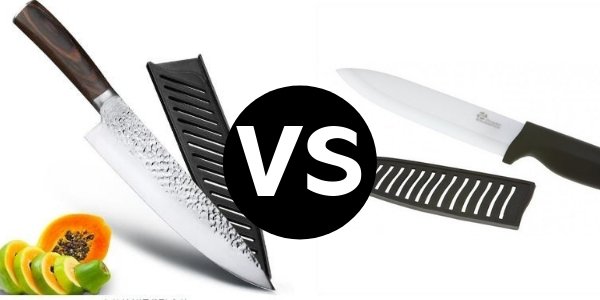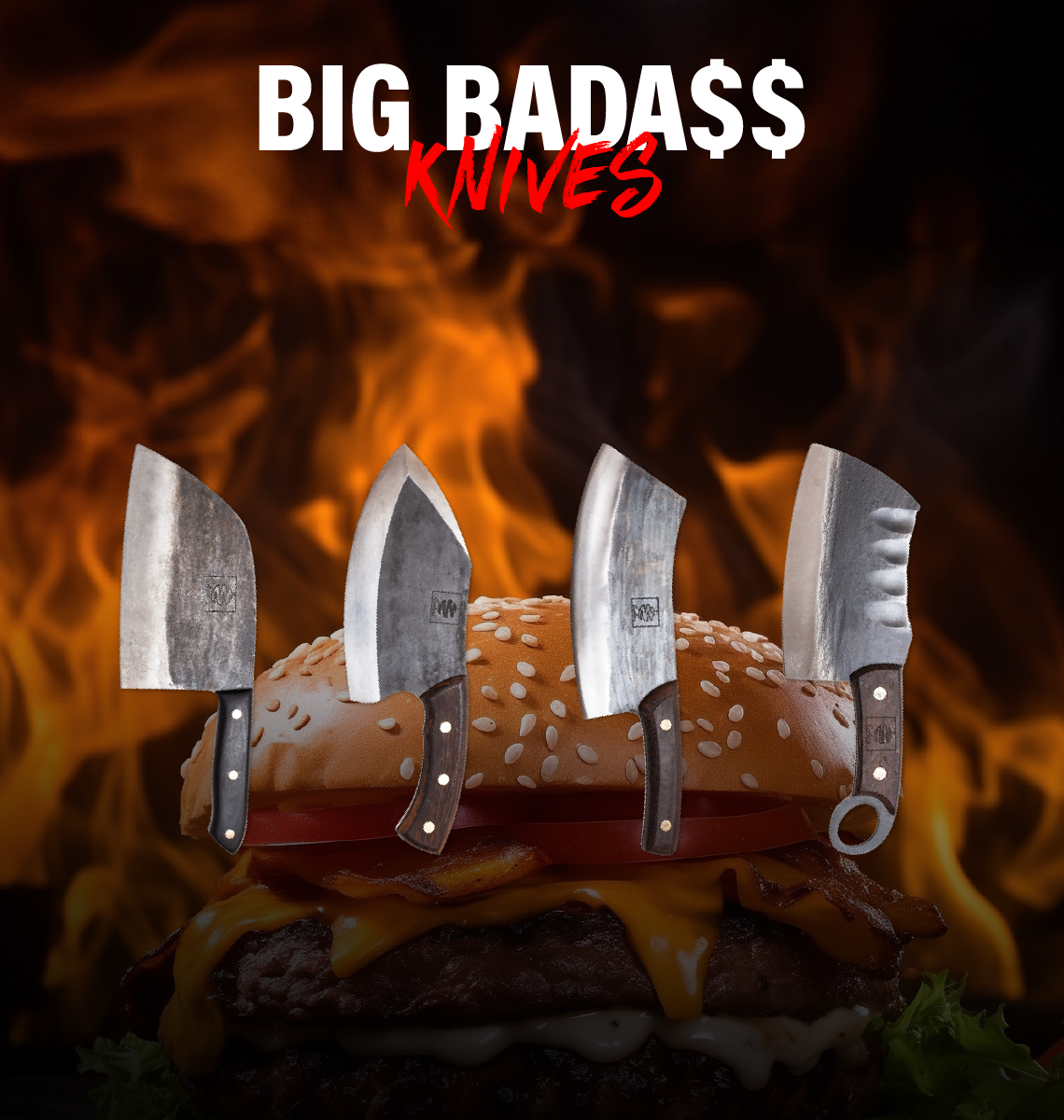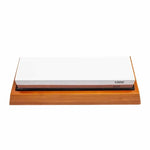Steel knives VS Ceramic knives: Which one is better?

This is a question that concerns many people and believe us, it doesn’t have a simple answer, but in the end, we will have an answer for you. This is really a question of preferences and requirements. But it is not easy to understand without knowing what they can offer. That is why we are going to break down each of these types in detail and find out which is better: Steel or Ceramic?
The blade is the most important part of the knife and therefore, choosing the material of the blade is the hardest task when buying a knife. But it is not so hard when you know what you are looking for and when you are informed about the materials properly.
For example, do you know how any of these blades are being made? If no, let us inform you right now.
Steel knives undergo a long process of forging and polishing by professional blacksmiths from high-quality steel, which optimized the blade's sharpness, edge retention and corrosion resistance. After that, it gets put through multiple detailed hand inspections to test its quality. People are getting more and more into knives that were made with Japanese traditional knifemaking techniques, which are proven to be one of the best ways to make high-quality longlasting knives. Imagine having a knife that had so much personal work put into it, a work that has been relevant for thousands of years and still holding the place of the greatest technique.
Ceramic knives are mainly being manufactured in factories where they undergo several mechanical procedures. Yes, they can be handmade as well, but they need a heavily equipped master. Making ceramic knives is a rather complicated process with imported materials, which makes them quite expensive. But the market is full of cheap ceramic knives that have terrible quality.
Here is a quick rundown of the pros and cons for each of these materials:
Steel Pros:
Sharpness - When you buy a steel knife any type of steel, you will get an extremely sharp edge. This is, of course, the most important part of the blade. No one wants to buy blunt or semi-blunt knives. The sharpness of steel blades is mostly achieved thanks to the traditional craftsmanship, which is known to be one of the biggest of making steel blades.
Durability - Steel knives tend to have a long life, yes they might need a sharpening here and there but their longevity knows no boundaries. They are strong and extremely durable even after many years of use.
Strength - Steel knives can cut through anything and never break. In fact, steel is the only material that can make a kitchen knife strong enough to chop through bones. That is why professional chefs only use steel cleaver knives in their everyday use. People who know the outdoor life, also know that steel is the best material for outdoor knives, whether it will be hunting, fishing or just camping.
Sharpening - No matter what material you choose, you will need to sharpen it. And if your knife is steel you can do it at home by yourself. Just buy a sharpener once, instead of paying every couple of months for your knives to get sharpened. And in case if you are new to the sharpening world, here is how to sharpen steel knives.
Versatility - You can buy just one steel knife and use it for cutting everything in your kitchen. A steel knife can cut anything. It will become your go-to knife no matter what you cook.
Types - Steel knives are being made in dozens of fun shapes, sizes and styles, even the craftsmanship can be different.
Price - And last, but definitely not least, steel knives are generally cheaper than ceramic knives.
Steel Cons:
Rust - It can occur on the blade of a steel knife but don’t worry, you can remove it and even prevent it from appearing. And if you don’t know how you can read this article about how to clean rust from a kitchen knife.
Weight - Yes, steel knives can sometimes be a bit on the heavier side, but if you are getting a cleaver knife to chop up boney meat, then you probably need a heavy-duty knife that can handle the pressure and balance the work.
Ceramic Pros:
Weight - Ceramic knives are known for being lightweight, so if weight is something that concerns you, they might be right for you. But on the other hand, you want to feel the tool that you work with, you want it to balance your work. The good thing with Japanese steel knives is that they tend to be well-balanced, giving the sturdy feel when working.
Rust - Ceramic blades are not prone to rust, which is good for getting rid of one maintenance task.
Acid-resistant - Ceramic blades do not corrode when used regularly on acidic foodstuff, or when exposed to a high ph environment. This is great, especially when cutting acidic fruits and other foods.
Ceramic Cons:
Strength - Ceramic blades can have high hardness but they break easily. High hardness doesn’t mean they are unbreakable. Ceramic knives can never cut hard food such as boney meat or frozen food. They will break if you try.
Thinness - Ceramic blades are sharpened so thin that anything hard can put a chip in them.
Sharpening - Sharpening a ceramic knife at home is largely impossible. You will have to pay for it to get done regularly, which is not ideal.
Versatility - Ceramic knives have a very small circle of tasks that they can perform. You can never think ceramic knives as versatile.
Types: Ceramic knives don’t come in much different sizes and shapes. You can get them in all sorts of colours, but when it comes to functional variations, they don’t have much of those.
Price - Ceramic knives tend to be quite expensive for what you get, you can never get a good quality ceramic knife with a cheap price tag. Which is not the case with steel knives.
In conclusion: Considering all the factors, we find that if you want a knife that can cut anything and provide longevity, you shall purchase steel knives. They are strong, durable, sharp, balanced, versatile and you can sharpen them at home. But if you choose to buy ceramic knives, make sure to invest because if a ceramic knife is cheap it definitely is not great quality. Where steel knives, no matter the price, are high-quality and will last you a long time.
































